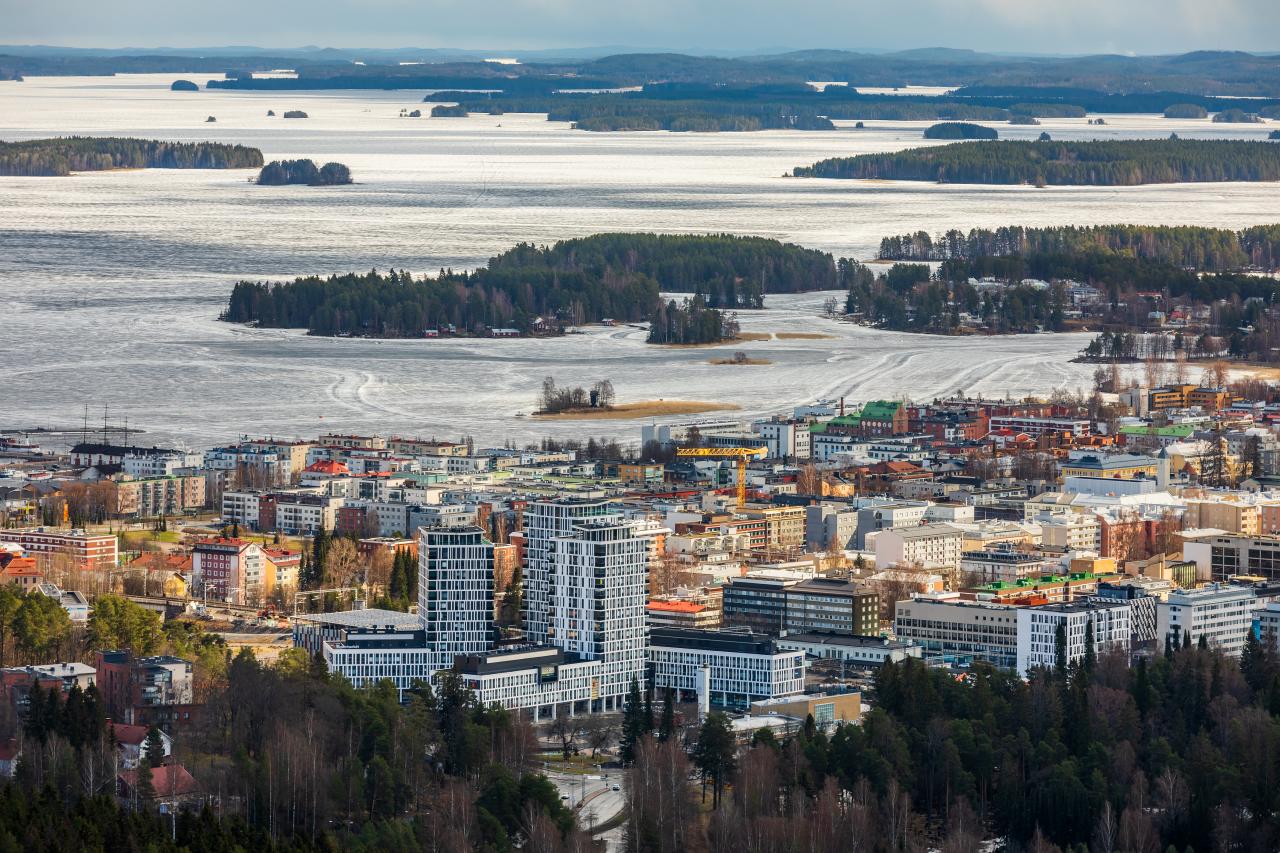One Health approach from strategy to holistic everyday wellbeing
Wellbeing promotion has a strong emphasis in the city of Kuopio’s strategy. Citizen’s wellbeing as well as environment’s wellbeing are highly valued as key targets of the city organization. Kuopio’s strategic aim is to become a capital of good life, which forces the city organization to systematically improve its practices.
The city of Kuopio has been a member of the WHO healthy cities networks since 2005. As a network member, Kuopio is dedicated to promote human, animal and environmental health and implement a holistic One Health approach in all policies. Kuopio has signed a declaration among other Healthy Cities which declares the city’s commitment to One Health implementation.
Kuopio was happy to join city of Lyon’s Urbact project initiative as a partner city in the year 2022. The aim was to collaborate with other cities who wanted to implement One Health approach in their own cities and to create international and local One Health networks. Even though Kuopio’s strategy has already included holistic approach with it’s four strategic programs, there was a need to further develop one holistic One health strategy to enhance the city development without silos. The impacts of climate change are slower in Kuopio compared to other European partner cities due to Kuopio’s Northern location. Yet, the changes are inevitable and it is therefore necessary to anticipate and improve preparedness and to learn from others, more Southern cities’ experiences. International collaboration is one of the key priorities in the city strategy of Kuopio.
City visits and regular sharing of the development experiences enhance the mutual learning
One Health 4 Cities project, launched in June 2023, and supported by the Urbact EU funding, has provided a great opportunity to broaden both the local collaboration within the relatively new approach, as well as international collaboration between the project partner cities. The partner cities are all taking action locally, and they also share regularly their actions, experiences and learnings with other European partner cities. Cities also learn from each other through partner city visits, which are an important part of the Urbact-funded projects.
In February 2024, partner cities Lyon and Strasbourg visited Kuopio. During the visits the French project team met Kuopio’s local One Health 4 Cities team and shared their knowledge and experiences between the cities. The teams explored Kuopio’s nature by doing winter outdoor activities, such as kick sledging, snowshoeing and walking in the snowy forest. The specialty of Kuopio, the four forest pre-schools, were of special interest of the French team as city of Lyon had decided to import the idea to Lyon as well. In Kuopio, pre-school attendance is obligatory for 6-year-old children. For those who choose to attend forest pre-school, the days are full of outdoor activities in nature, all year round, even in winter when the weather is cold, sometimes over –20 celcius degrees. Children at the forest pre-school become very active, imaginative and independent, and they learn to enjoy outdoors in nature. At the same time, their immune system benefits from interacting with rich forest microbiota, as Finnish medical scientists have indicated in several studies.
The city of Kuopio has been highly inspired by the partner cities’ experiences, examples and discussions with the partners. Very interesting school-yard greening project has been launched in Strasbourg, which Kuopio has been very inspired of. In Strasbourg concrete elements and playgrounds are removed and replaced with green, natural elements to create space that encourages children to become more physically active, and that improve children’s mental wellbeing in a way that also improves equality between the genders. As recent research indicated, we need to pay more attention to girls’ physical acitivity promotion. Boys are more active already at pre-school age. In Finland, as in other countries, sport has strong traditions which can be seen in school-year planning as well. With Strasbourg’s example, other cities, Kuopio as well, should pay more attention to how to create up-to-date environments that encourage physical activity and mental wellbeing of today’s children and adolescents and that includes more natural elements to promote also immune system which pays on important role in preventing chronic inflammation. Natural, healthy environment is strongly associated with children’s health.


